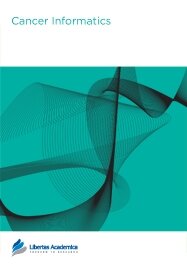

Publication Date: 27 Jan 2015
Type: Review
Journal: Cancer Informatics
Citation: Cancer Informatics 2015:Suppl. 1 23-35
doi: 10.4137/CIN.S14873

Identification of molecular-based signatures is one of the critical steps toward finding therapeutic targets in cancer. In this paper, we propose methods to discover prognostic gene signatures under a causal structure learning framework across the whole genome. The causal structures are represented by directed acyclic graphs (DAGs), wherein we construct gene-specific network modules that constitute a gene and its corresponding regulators. The modules are then subsequently used to correlate with survival times, thus, allowing for a network-oriented approach to gene selection to adjust for potential confounders, as opposed to univariate (gene-by-gene) approaches. Our methods are motivated by and applied to a clear cell renal cell carcinoma (ccRCC) study from The Cancer Genome Atlas (TCGA) where we find several prognostic genes associated with cancer progression – some of which are novel while others confirm existing findings.
PDF (1.80 MB PDF FORMAT)
RIS citation (ENDNOTE, REFERENCE MANAGER, PROCITE, REFWORKS)
Supplementary Files 1 (315.80 KB PDF FORMAT)
BibTex citation (BIBDESK, LATEX)

Cancer Informatics has become an increasingly important source for research in the methodology of cancer genomics and the novel use of informatics technology. I have been impressed by the journal's contents and have been very gratified by the number of accesses to my recent publication. Cancer Informatics has filled an important gap in cancer research journals.
Facebook Google+ Twitter
Pinterest Tumblr YouTube